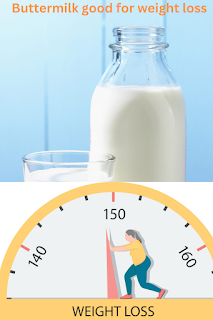Stress Leads to Constipation in Adults and Home Remedies for curing Constipation
Stress is an inevitable part of life, and everyone
experiences it at some point in their lives. It can be due to a variety of
reasons, including work pressure, family responsibilities, financial problems,
or health issues. However, stress can also have physical consequences on our
bodies, one of which is constipation. In this article, we will explore the
connection between stress and constipation and provide some of the best home
remedies to alleviate this problem.
Home Remedies for Constipation
Fortunately, there are several home remedies that can help alleviate constipation caused by stress. Here are some of the best ones:
Regular exercise is one of the best ways to keep the
digestive system healthy and prevent constipation. Exercise helps to increase
blood flow to the intestines and stimulate the muscles in the digestive tract,
leading to more efficient bowel movements. Aim for at least 30 minutes of
moderate-intensity exercise, such as brisk walking or cycling, most days of the
week.
Drinking plenty of water and other fluids is essential for
maintaining regular bowel movements. When we are dehydrated, the stools become
harder and more difficult to pass. Aim for at least eight glasses of water a
day, and include other fluids such as herbal tea, fruit juice, and coconut
water.
A diet high in fiber can help to alleviate constipation by
promoting bowel movements and preventing hard, dry stools. Good sources of
fiber include fruits, vegetables, whole grains, legumes, and nuts. Aim for at
least 25-30 grams of fiber a day.
Probiotics are live bacteria that can help to improve
digestive health and prevent constipation. They can be found in foods such as
yogurt, kefir, and sauerkraut, or taken as supplements. Probiotics work by
restoring the balance of good bacteria in the gut, which can be disrupted by
stress and other factors.
Abdominal massage can help to stimulate the digestive tract
and promote bowel movements. You can either do it yourself or see a massage
therapist. Start by lying on your back and using circular motions to massage
your abdomen in a clockwise direction.
Stress management techniques such as meditation, deep
breathing, and yoga can help to reduce stress and improve digestion. These
techniques work by activating the parasympathetic nervous system, which is
responsible for the "rest and digest" response.
Certain herbs can help to alleviate constipation and promote
digestive health. Here are some of the best ones:
Aloe Vera: Aloe Vera has laxative properties and can help to
soften stools and promote bowel movements.
Ginger: Ginger can help to stimulate the digestive system
and alleviate constipation.
Peppermint: Peppermint can help to soothe the digestive
tract and alleviate constipation, bloating, and gas.
Dandelion: Dandelion can help to improve liver function and
promote bowel movements.
Triphala: Triphala is an Ayurvedic herb that can help to
improve digestive health and alleviate constipation.
These herbs can be taken as teas, supplements, or added to
food.
Essential oils can help to alleviate constipation by
stimulating the digestive system and promoting bowel movements. Here are some
of the best ones:
Ginger oil: Ginger oil can help to stimulate digestion and
alleviate constipation.
Fennel oil: Fennel oil can help to soothe the digestive
tract and alleviate constipation, bloating, and gas.
Lemon oil: Lemon oil can help to promote liver function and
improve digestion.
These oils can be used in aromatherapy, added to baths, or
used in massage.
Acupressure is a traditional Chinese therapy that involves
applying pressure to specific points on the body to alleviate pain and promote
healing. Certain acupressure points can help to stimulate the digestive system
and alleviate constipation. These include:
CV6: This point is located two finger-widths below the belly
button and can help to promote bowel movements.
ST25: This point is located two finger-widths to the right
and left of the belly button and can help to relieve constipation and bloating.
LI4: This point is located on the back of the hand between the thumb and index finger and can help to stimulate the digestive system.
Conclusion
Stress can have a significant impact on our digestive health, leading to constipation and other digestive problems. However, there are several home remedies that can help to alleviate constipation caused by stress. These include exercise, hydration, fiber, probiotics, massage, relaxation techniques, herbal remedies, essential oils, and acupressure. By incorporating these remedies into your daily routine, you can improve your digestive health and reduce the impact of stress on your body.






